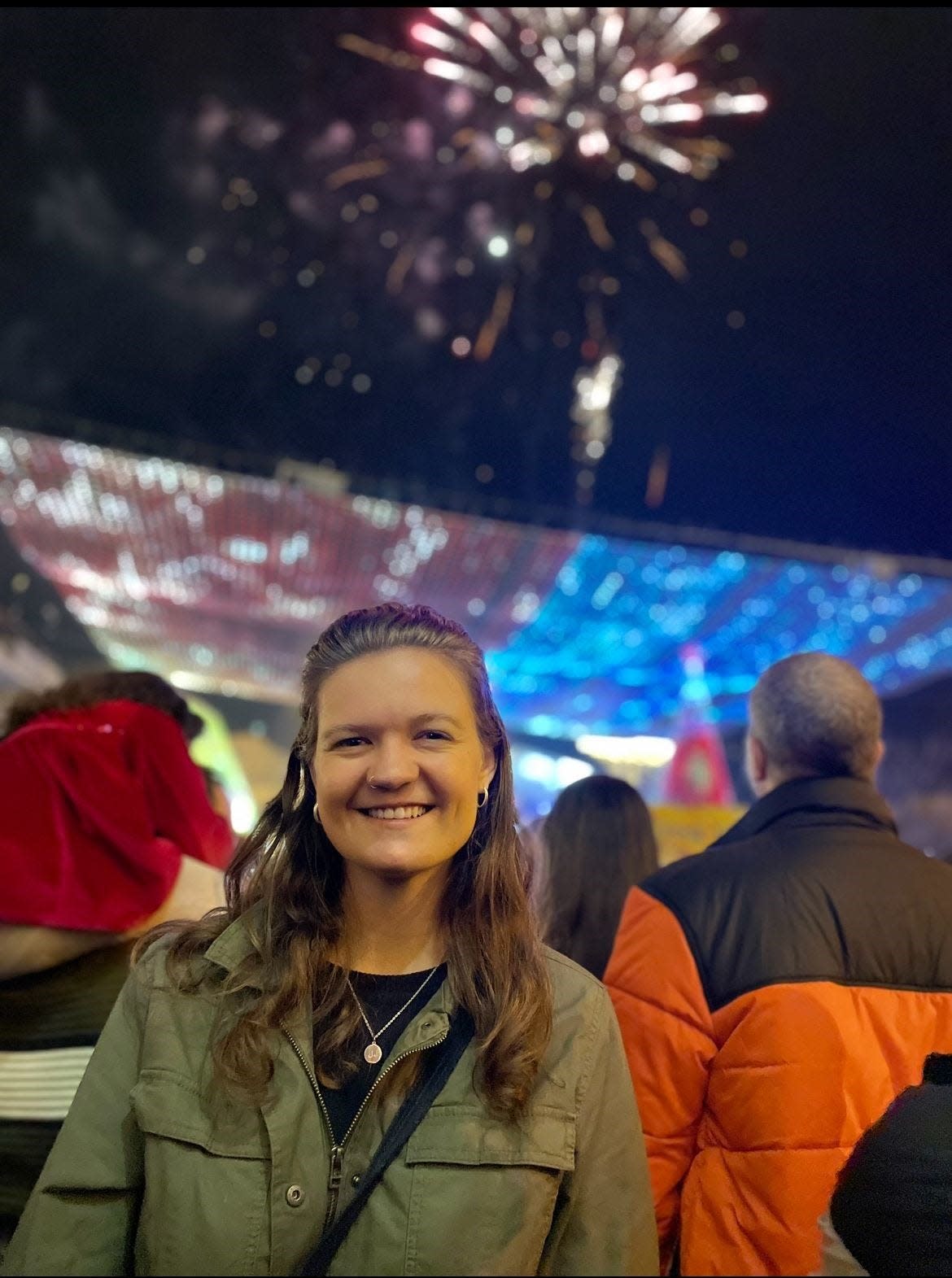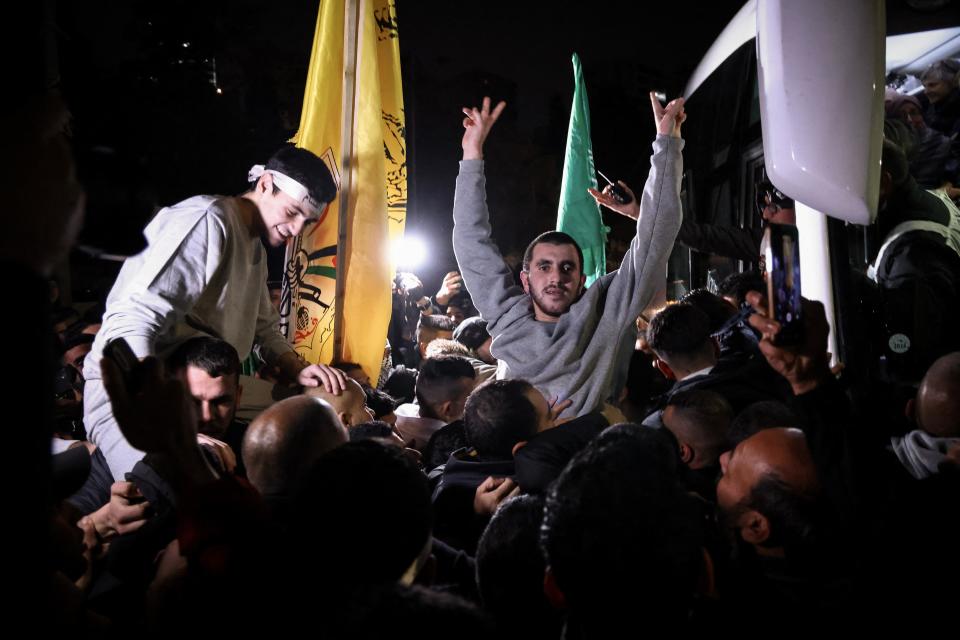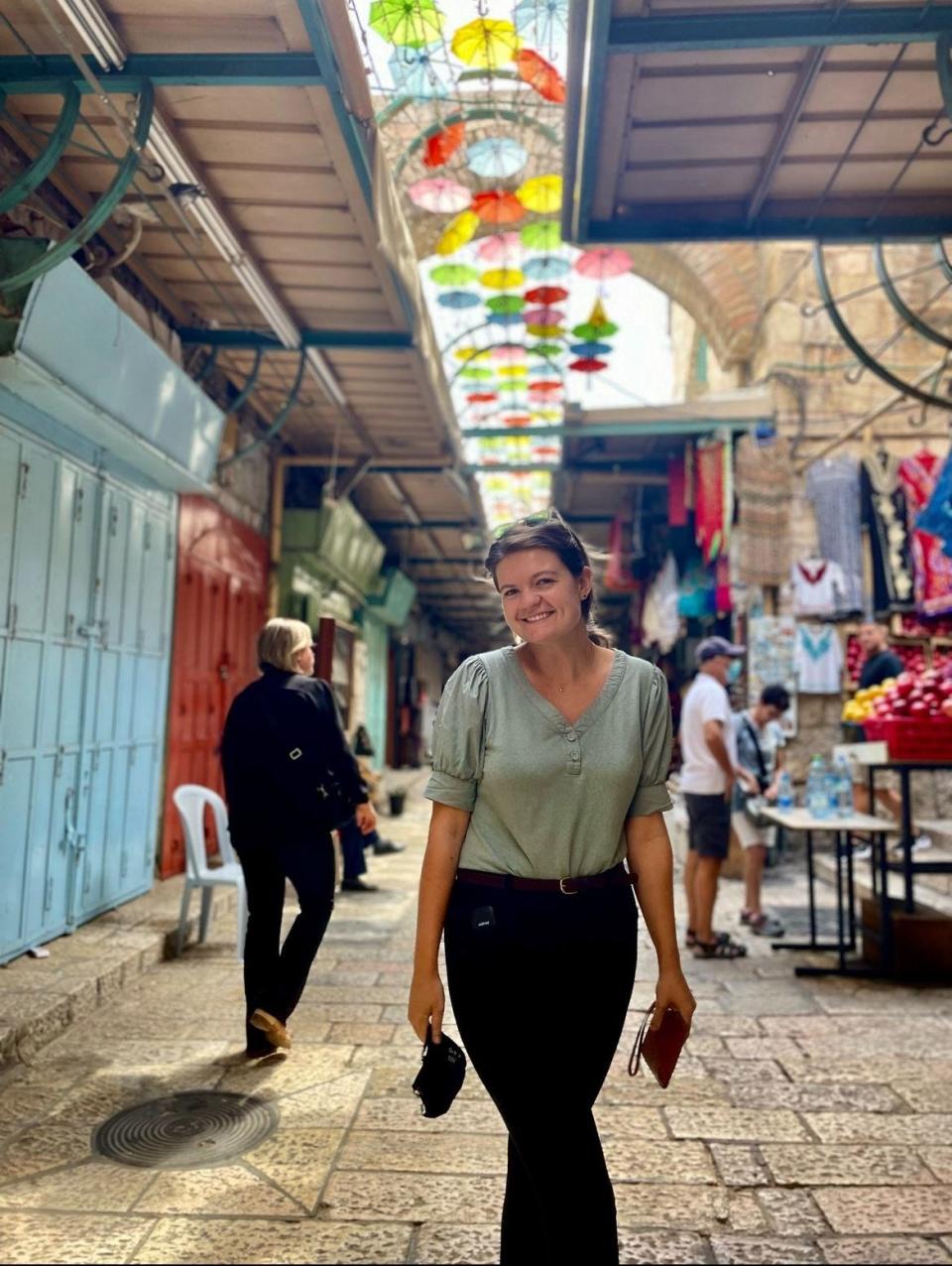Whitefish Bay woman working in Bethlehem describes raids, fear, absence of Christmas tourism

This Christmas, the winding streets of Bethlehem won't be decorated with lights, and the town square believed to be the birthplace of Jesus won't be packed with holiday revelers.
In solidarity with Palestinian victims of the Israel-Hamas war in Gaza, Christian leaders in the West Bank city canceled Christmas festivities. The city, typically bustling with thousands of tourists during the Christmas season, will be quiet.
For Maddi Froiland, a Whitefish Bay native who lives and works around Bethlehem, it's another indicator of the somber, anxious mood that has permeated the West Bank since the war in Gaza began in October.
"It's really kind of a quiet fear," she said. "And then throwing your hands up and being like, 'What can we do?'"
Froiland, 26, a graduate of Whitefish Bay High School, works as a communications officer for the Evangelical Lutheran Church in Jordan and the Holy Land. The church runs six congregations and four schools in and around Bethlehem, Jerusalem and Amman, Jordan.
It is closely tied to the Evangelical Lutheran Church in America, a mainline Protestant denomination. Froiland's mother, the Rev. Lisa Bates-Froiland, is the pastor of Redeemer Lutheran Church, an ELCA congregation in Milwaukee.
Since the war began, Froiland's Palestinian friends have told her about frequent Israeli military raids and mass arrests in the Bethlehem-area refugee camps where they live. Those detained return with stories of violent beatings, small food rations and overcrowded jail cells.
"My friends, even until now, they're sleeping with their clothes on in case they get taken," she said. "There's just a lot of fear and stress and lack of sleep."
Palestinian prisoner advocates said Israeli authorities have arrested more than 3,000 Palestinians in the West Bank and East Jerusalem since Oct. 7, when Hamas attacked Israel. The Israeli government said the number is closer to 1,800 people.
Israel recently released 240 of its Palestinian detainees, all women and teenagers, as part of its hostage and ceasefire deal with Hamas. The militant group, which the U.S. and European Union designate a terrorist group, released 105 hostages, mostly women and children.
Froiland's upstairs neighbor, the retired principal of a Christian school, expressed exhaustion at the continued violence.
"She was saying, 'My whole life, it feels like there's war. And I just want to experience what peace is like,'" Froiland said. "And that's just sad. A lot of people, they're not as invested in politics. They just want to live a real life and make a future for their kids."

Palestinians in West Bank face financial hardship
Froiland also worries about the economic impact of the war on average Palestinians in the West Bank. Neighbors of hers lost all the income they'd typically make from the fall olive harvest because they were too afraid to venture out to their trees after a surge of Israeli settler attacks on Palestinian farmers. Others report that roads blocked by the Israeli military prevent them from reaching their trees.
Farmers earned more than $120 million last year selling their olives and producing oil, according to VOA News, and this year they're expecting a major shortfall as huge quantities of olives were left to rot unharvested.
Further, because Bethlehem relies so heavily on tourism to Christian holy sites, many workers could face major financial losses as tourists avoid or can't enter the West Bank. The uncertainty over when, or if, the industry will bounce back is another source of stress, Froiland said.
Froiland herself has had to adjust to a more substantial Israeli military presence in Bethlehem. New roadblocks mean the bus she takes to work no longer stops near her home. Instead, she must take a taxi and walk around a barbed wire fence to reach it.
But as a white, American woman, she said she isn't a likely target of Israeli soldiers and hasn't felt unsafe. Her visa allows her to bypass the most intensive Israeli checkpoints between towns.

A wish to 'find humanity in Palestinians'
When the war broke out, Froiland resisted returning to the U.S. She'd already had to leave quickly once before, when the COVID pandemic began, and she didn't want to do it again. Plus, she said, she didn't want to abandon her Palestinian friends and colleagues who couldn't move away as easily.
"It almost feels like you're ranking your life above others," she said.
Because of her familiarity with Israel's occupation of the West Bank, she wasn't surprised by the country's full-throated response to Hamas' Oct. 7 attack.
What dismays Froiland is President Joe Biden's strong support of Israel. She used to push back against Palestinians who said every American president was the same. She would say: No, Biden will be more supportive of the Palestinian people.
"I wish people in America would seek to find humanity in Palestinians with the same efforts that they find humanity in Israelis," she said.
Recently, in conversations with her Palestinian friends, she's been doing a lot of listening. Amid the uncertainty, fear and anxiety, she hears one Arabic phrase a lot: il wadaa saeb.
It means, "The situation is hard."
Palestinians are resilient, Froiland said. It's their way of acknowledging the strange and challenging times.
This article originally appeared on Milwaukee Journal Sentinel: In Bethlehem, Milwaukee area woman sees impact of Israel-Hamas war

